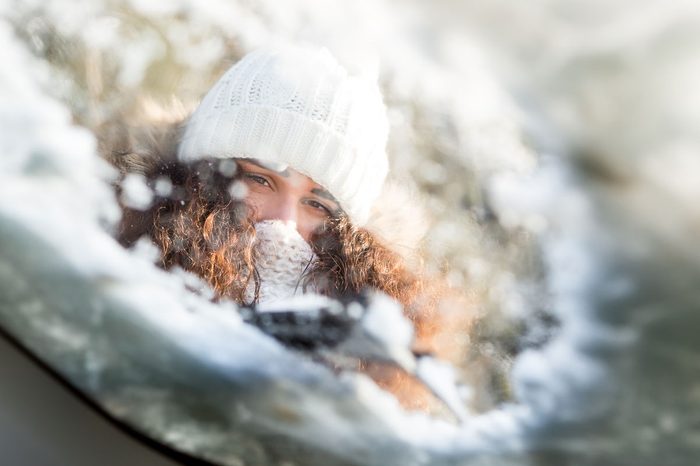
Winter can age your skin
Winter means sub-zero temperatures, fewer daylight hours, and more time spent indoors. Cold weather can leave your skin feeling dry and chapped, meanwhile, indoor heating can zap your skin’s moisture. These conditions, both outdoor and indoor, can contribute to aging in the winter.
Read on as dermatologists explain the reasons why your skin ages in the winter and what you can do to prevent these unpleasant skin conditions.
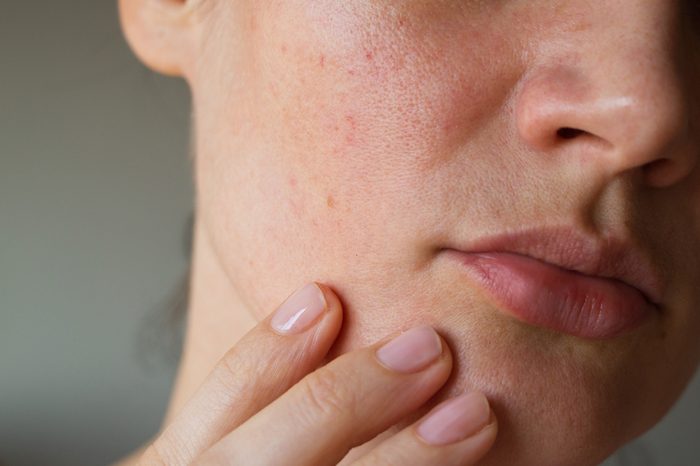
There’s significantly less moisture in the air
Perhaps the most obvious aspect of wintertime is the fact that it’s cold and dry—two characteristics that don’t bode well for youthful-looking skin. “The dry, harsh environmental conditions in wintertime often disrupt the skin’s equilibrium, causing redness and sensitivity,” says Ted Lain, MD, an Austin-based dermatologist. “This sensitivity can make us susceptible to skin conditions like rosacea, which tend to worsen in the winter and, over time, can lead to premature aging.”
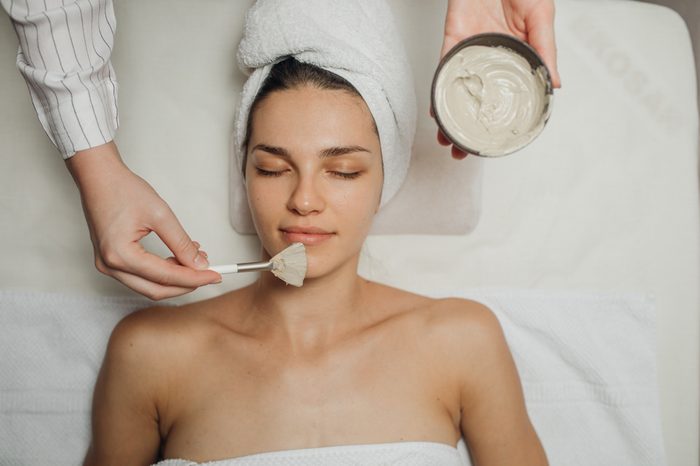
You’re more stressed out
“Unfortunately the holidays and all the expectations surrounding them increase our stress level,” says Dr. Lain. “An increase in the stress hormone, cortisol, can have deleterious effects on the skin, again causing premature aging and poor tone and texture.” He recommends incorporating some rest and relaxation time now and then, whether it’s watching a movie at home or having a spa day; that will give you (and your skin) a chance to recoup. (Psst: Did you know that exercise can help relieve stress?)
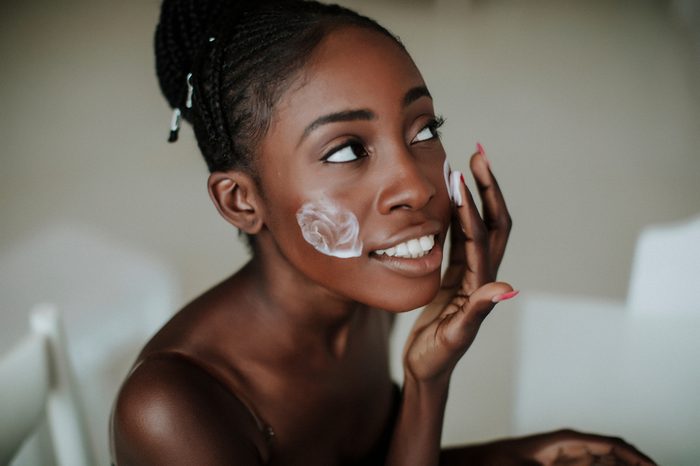
You don’t regularly apply sunscreen
Sunscreen is important year-round, even in the wintertime on the cloudiest or snowiest of days. “While UVB B rays (short wave ultraviolet B) decline in intensity during the winter months, UVA A rays (long wave ultraviolet A) do not, and these are the ones responsible for most of the DNA damage that leads to skin cancer and premature aging,” warns Dr. Lain. For this reason, he recommends that all his patients wear a broad-spectrum sunscreen with at least an SPF 30 year-round.
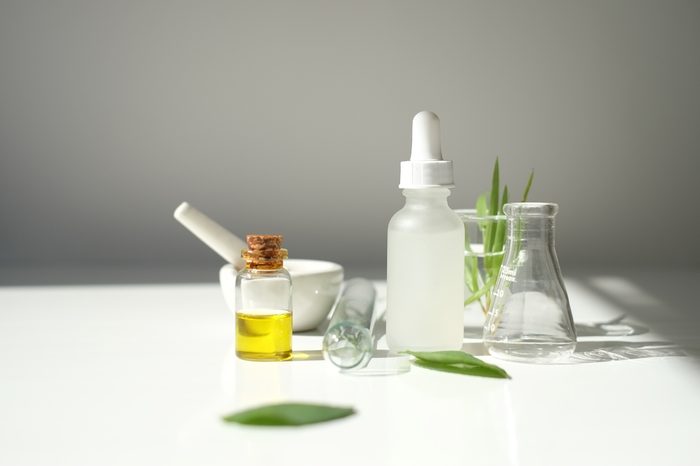
You’re using the same skin care products as you did in the summer
The wintertime, with its dry, harsh environmental conditions, calls for its own set of skin care products that contain different ingredients than the ones you rely on to combat summer’s heat and humidity. It’s best to incorporate ultra-hydrating ingredients such as ceramides and hyaluronic acid, which holds up to 1,000 times its weight in water. (Psst: These are the skin-care resolutions you should make every winter.)
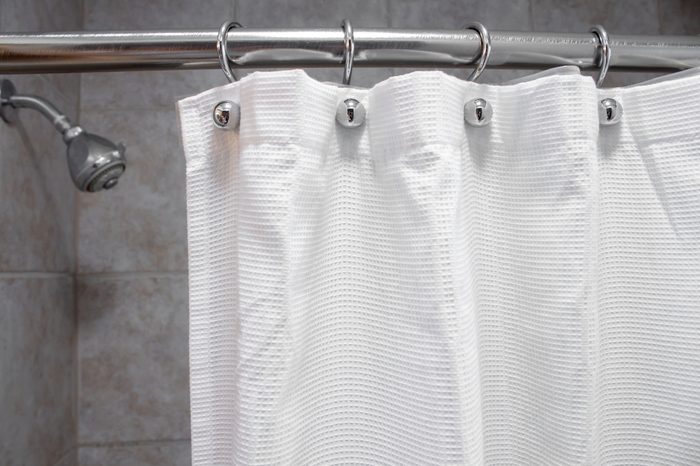
Your showers are way too hot
In the wintertime, when the weather outside is freezing cold, for many, it feels comfortable to warm up in a really hot shower. However, doing so can dry out your skin more. “Hot water strips the natural oils from your skin, leaving it dry and vulnerable to cracking, especially in the winter,” says Dendy Engelman, MD, a dermatologist at Manhattan Dermatology and Cosmetic Surgery in New York City. “I believe that it’s important to ‘soak and grease,’ which means spend at least 20 minutes in a lukewarm shower or bath and then immediately apply moisturizer to the skin after bathing.” Speaking of showering, these are the bodyparts you may be washing wrong.
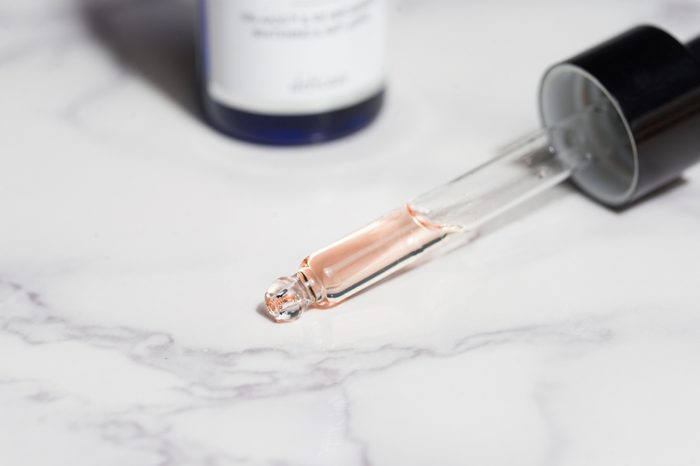
You’re using cleansers that are too harsh
“Dry skin can no longer protect nerve endings, leaving the skin more vulnerable and susceptible to irritants, such as cleansers with chemicals that can burn the overexposed, cracked skin,” explains Dr. Engelman. For this reason, she recommends using oil-based cleansers during winter, which eliminate impurities without drying out the skin. “Essentially the oil binds to the oils on your face and the cleanser rinses them away, without stripping your skin of its good natural oils,” she adds. (Psst: These are the most common winter skincare mistakes.)
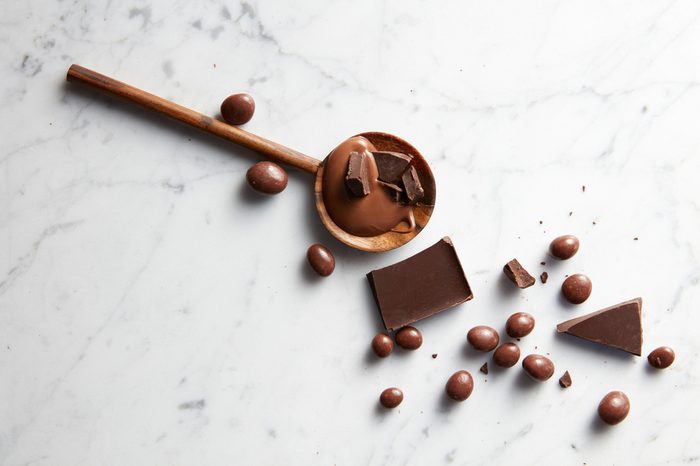
You rely more on comfort foods
The saying “you are what you eat” can also apply to your skin, too. Although it can be tempting to reach for more hearty and caloric foods when the temperatures are so low, healthy skin requires a blend of fresh fruits and vegetables. Karin L. Hermoni, PhD, head of science and nutrition at Lycored recommends eating a combination of different natural phytonutrients from fruits, vegetables, and spices, which can work synergistically to provide better benefits for your body and its largest organ: Your skin. Be sure you’re not eating these foods that can make you age faster, too.
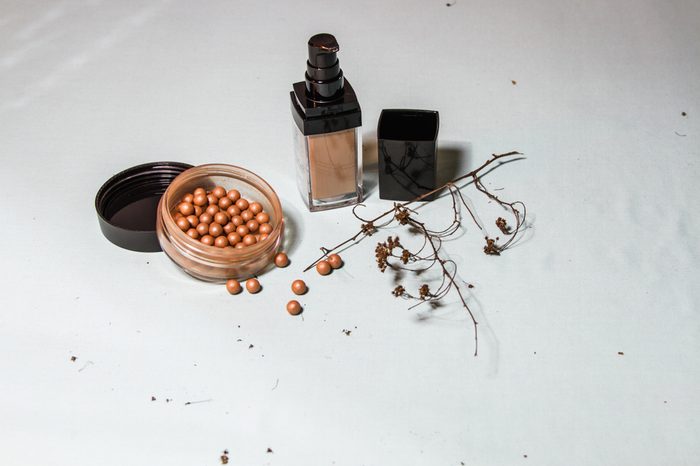
You’re exposed to less sunlight
“Vitamin D and vitamin K levels drop in the winter, and are associated with darker circles under the eyes, giving the appearance of significant aging due to paler, more transparent skin,” explains Patricia Wexler, MD, New York City dermatologist and founder of Wexler Dermatology. Instead of sneaking into a tanning booth, try applying a tan bronzer to help add youthfulness and colour back into pale, tired-looking skin. (Find out if it’s better to take vitamin D supplements or spend time outdoors.)
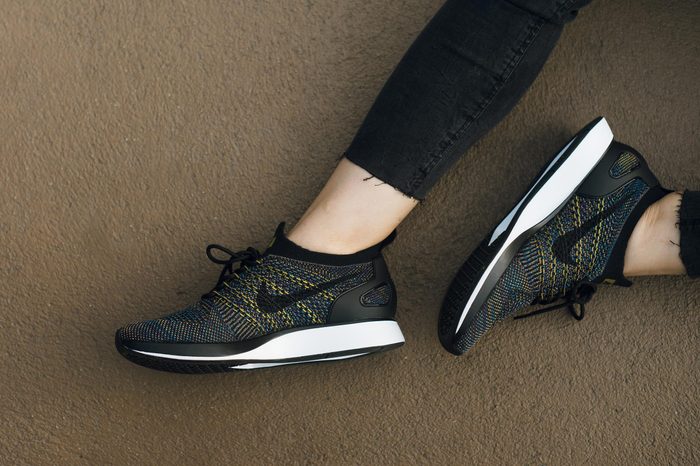
You’re more sedentary
It’s only natural that you’re less active in the wintertime when the freezing-cold weather has you bundled up indoors. However, it’s still important to incorporate physical activity at least a few times a week. Neglecting your fitness will ruin your mood, raise your weight, and it could increase inflammation in your body—which is the source of heart troubles and numerous other age-related illnesses, warns Dr. Wexler.

You’re cranking up the heat indoors
Indoor heat is a godsend in the wintertime, but couple it with the low-humidity of most modern heating systems and you’re left with dry skin and frizzy hair. A simple fix is to use a humidifier, which will allow your skin to retain its moisture. In the meantime, check out these dry skin home remedies.

You’re still exfoliating several times a week
Even if you enjoy a nice skin exfoliant during the rest of the year, Jerome Garden, MD, dermatologist and director of the Physicians Laser and Dermatology Institute in Chicago, recommends skipping it during the winter. “Our skin is usually drier due to the weather and dry air, so further drying it out with washes or scrubs will cause more damage,” he says. “Wash your face in the winter only once a day (unless very sweaty or dirty) and use a gentle soap, such as Cerave or Cetaphil.”
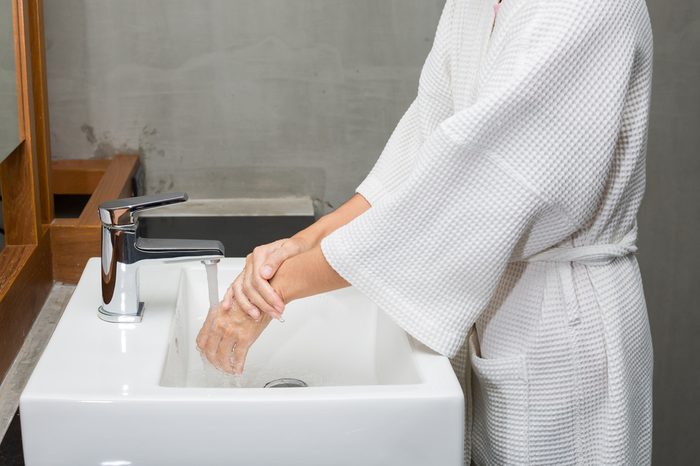
You’re over-washing your hands
It may seem like a better idea to over-wash your hands than under-wash them in the winter when the cold and flu is spreading—but the combination of water and soap can dry out your skin even more. For this reason, Dr. Garden recommends limiting hand washing to only when it’s needed, using lukewarm water, wearing gloves while washing the dishes, and, most importantly, using a thick cream or ointment (such as petroleum jelly) after every wash.
Next, find out which exercises can make you look older.
